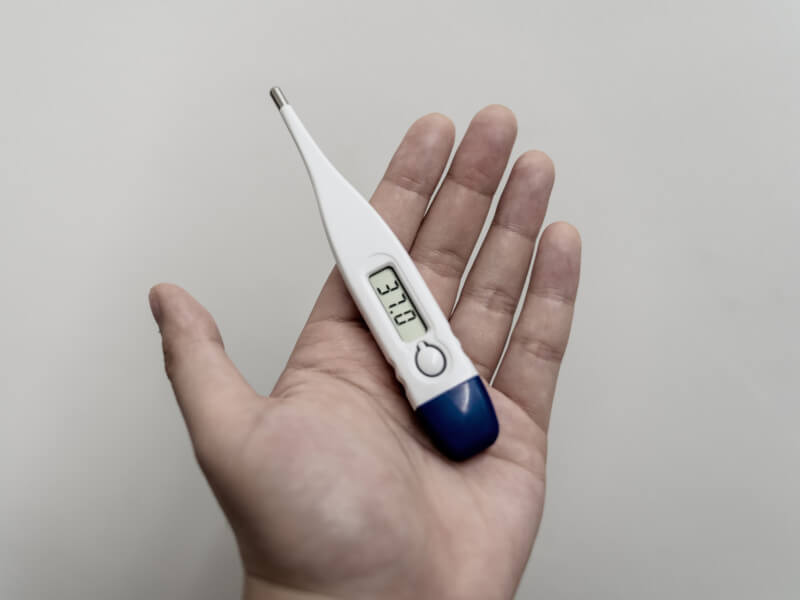Is a major mental disease affecting your life or the life of someone you know? Having a mental disorder alters how you typically act. It might be upsetting and hinder our ability to function normally. A severe medical condition could be something like a factitious disorder. It’s a severe mental illness that someone brings on themselves or others. They would intentionally hurt themselves so it looked like they had the sickness. Find out what the symptoms of the factitious disorder are and how to spot it.
Define the term “Factitious Disorder”
Factitious disorder is defined by the Diagnostic and Statistical Manual of Mental Disorders as the deliberate portrayal of a mental or physical problem where none exists. These folks aren’t ill, despite popular belief. But they’ll go to any length—including risking injury—to make everyone else believe it. People with this disorder are not the same as individuals who fake illness for a limited time, such as when they want to get out of class or settle a legal dispute. People who suffer from factitious diseases know that they are responsible for their condition.
However, they are clueless as to the motivations underlying their actions. When a caretaker pretends that their patient is ill, they are committing the act of factitious disorder by proxy. They make the sick or hurt child or elderly person they are caring for believe that they are sick or hurt.
Do Mental Health Professionals Recognise Factitious Disorder?

A factitious disorder certainly qualifies as a severe mental illness. Identifying the factitious disease may be challenging. There’s a lot more to check for and manage. There are currently no objective imaging scans that can detect the indications and symptoms. However, expert psychiatric assistance may avert catastrophic self-harm injuries. There are primarily two factitious disorders.
A False Illness Imposed Upon Oneself
The Munchausen Syndrome is another name for this. It’s an imaginary illness that one creates for themselves. This category includes acts like pretending to be mentally or physically ill. The patient also displays symptoms of the psychiatric condition being mimicked. Hallucinations and seeming confusion are common reports from those with various mental illnesses. Fake mental disorders are used to get attention or sympathy from others. It’s simple for them to fabricate symptoms or stage examinations. They would deliberately harm themselves to experience a specific symptom.
A False Disorder Forced Onto Someone Else
Formerly known as “Munchausen by Proxy,” this term is now obsolete. A factitious disease of this sort is artificially created by the medical staff and forced upon the patient. Anyone, from the youngest to the oldest. It occurs when a patient incorrectly attributes symptoms of illness to another individual. Individuals with this condition will falsely claim that another individual is ill or harmed. They’ll make their patients feel worse by making them believe they have an illness. Mothers who injure their children on purpose often suffer from this condition. These people have an urgent need for medical and psychological care!
Signs of a False Memory Disorder
Patients with the factitious disorder typically complain of physical manifestations of the condition. Indicators of a nonexistent Urinary Tract Infection include claims of fever and uncomfortable urination. Chronic chest pain is another symptom that may indicate heart disease. Those who suffer from this condition may research the illness they claim to have to feel more authentic. Some people will stop at nothing to prove they were lying.
If required, they will knowingly injure themselves, create false medical records, or have unneeded surgery. One may, for instance, prick a finger and place a drop of blood in the urine sample as evidence.
Creating or Acting Out an Injury is an Indication of Factitious Disorder
The symptoms are heightened so that the story seems more plausible. Individuals with this condition are willing to put their lives in danger to maintain their facade. This pattern of behaviour can make it difficult to determine whether or not the person is suffering from a serious illness. When questioned about their “illness,” they appeared to have an in-depth understanding of it.
Those who suffer from factitious diseases will keep lying for no apparent cause. They continue regardless of the counterarguments presented to them. Despite the severity of their condition, people with schizophrenia tend to be insightful and resourceful. It appears that they have a thorough understanding of how their problems manifest. Even their medical treatment and diagnosis might be manipulated to increase the intensity of their therapy. They understand the gravity of their deception. But without understanding what drives them or why they act in this way.
Indicators of Factitious Disorder
The following are some of the most prominent red flags displayed by those who suffer from factitious disorder:
- Medical history that doesn’t add up and is full of holes
- Symptoms that don’t make sense and fluctuate
- Expertise in the field of medicine and the language used to describe it
- Symptoms that refuse to go away after conventional treatment
- Demonstrates the emergence of new symptoms following a negative diagnostic workup
- Eager to submit to invasive procedures to establish guilt
- Has a record of visiting clinics and hospitals for care
- Many scars from previous operations
- Makes dire medical predictions without sufficient evidence
- Defies a mental health assessment
- Eager to undergo unpleasant or even dangerous procedures
- Creating a medical emergency out of minor symptoms
How do people who suffer from Factitious Disorder Pretend to Be Ill?
The primary purpose of having this disease is to fake symptoms so that one can get help. They get so proficient at it that not even psychiatrists can spot the warning signs. Illness can be brought on in a variety of ways by those who suffer from factitious conditions. Some instances of this practise are as follows:
Crooking the Books on Medicine
They can provide a convincingly detailed fake medical history to back up their symptoms. They risk having their doctors approve procedures that aren’t necessary if they do this. Unnecessary medical interventions may exacerbate their condition. These potentially fatal mistakes could be avoided with more education about factitious illnesses.
False Conditioning
Why do these people lie about their illnesses? Numerous options exist. Some people will go to extremes, like injecting themselves with bacteria so they can catch it. Overdosing on over-the-counter sleep aids is one technique used to imitate convulsions. Some people would take a lot of laxatives to make it look like they had diarrhoea. Their life is in jeopardy because of these illnesses they brought on themselves. And these people have a dire need for psychiatric care.
Doctors Not Willing to Consult With Family Members
Individuals with a factitious disorder typically avoid conflict at all costs. They refuse to have a confirmation meeting with their doctors and/or family members. They should avoid involving their loved ones in the drama if they want it to last.
Factitious Disorder Risk Factors

The factual disorder has unknown origins. However, many other things put people at risk of developing fictitious diseases. Biological and mental components may both have a role. Some of them are listed below:
Mental Disorder at Its Root
The likelihood of having a factitious disorder may be higher in those with preexisting mental health conditions or deeper psychological disorders. Some patients play up their illness to get sympathy. Their method of coping with mental stress is to receive attention from others. Intending to make someone notice them, they may cause harm to themselves or others.
Experiences or Childhood Trauma
Multiple mental health issues may develop as an adult as a result of early life trauma. Abused adults often repeat the behaviour they witnessed as children. This holds for many people, especially those who experienced childhood neglect. Most of them resort to fictitious behaviour as a means of surviving the psychological shock. Children born to these individuals may also be vulnerable to factitious behaviour in the future.
Loss of a Family Member
Losing someone you care about unexpectedly might bring on severe depression. Other significant medical conditions, such as factitious disorder, may develop as a result. Some people have mental health problems that, when triggered by grief, can lead to destructive behaviour. Some people turn to it as a means of staying alive in the face of overwhelming emotional challenges.
They Struggle with Self-Doubt
People who act factually often struggle with some form of self-doubt. Most have low self-esteem because of their history of physical and emotional neglect in childhood. Patients lose agency because of their dependence on the past. They feel empowered when they alter medical records and fake illnesses. That’s the thinking behind it, anyway.
Individuals Who Want to Be Referenced as “Doctors”
“Hospital hobos” is a term used to describe some people who suffer from a factitious disorder. They go from one medical facility to another in search of care. After consulting a doctor, most people feel relieved enough to indulge in some form of self-care. They have an intense longing to be around medical professionals and facilities.
Due to the misleading nature of the symptoms, Factitious Disorder can be difficult to identify. All patients will interpret their symptoms differently. A physician’s level of experience is directly related to his or her ability to diagnose and treat patients. People with factitious diseases can get therapy, though.
The Primary Goal of Available Treatments is Symptom Management
Having the right doctors provide primary care: To avoid further complications, a correct diagnosis is crucial. The patient should avoid being moved from hospital to hospital. Patients in this situation may benefit from psychotherapy, specifically Cognitive Behavioural Therapy and talk therapy. The programme’s focus is on reducing stress and improving resiliency. Medication for anxiety and depression: addressing the root causes of these conditions is key to preventing further mental health complications.
When Should You Ask for Help?
People who suffer from factitious diseases are aware that they have a problem, unlike those with several other types of mental illness. They know the danger their actions pose to others. The moment these patients began harming themselves or others was the moment they required assistance. Provide comfort and guidance in locating effective treatment for them.
The counsellors at Therapy Now can assist you if you suspect that you are experiencing symptoms of a factitious disorder or if you just want to find out more about them. It’s important to keep in mind that your symptoms are, at least in part, in your head. Potential mental health issues may exist for you. Help is here for you whenever you need emotional and psychological help. Visit their website, to schedule an appointment. Get in whenever you’re ready for some talk therapy for your mind.

This is the ultimate solution for impeccable audio content with our Powerful Relaxing…

Stress and anxiety are common conditions that affect a lot of people. They may experience…

When someone is diagnosed with tuberculosis (TB), they face a number of challenges, including social…

Procrastination is an odd form of delay that can be characterized as irrational because we…



